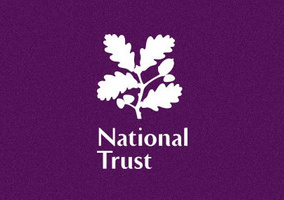Conservative MPs have accused the National Trust of straying from its purpose and say it risks “hectoring” its members, during a Westminster Hall debate yesterday.
The MPs urged the government to consider a formal review of the Trust. However, the heritage minister said a government review was not practical and would not achieve what the MPs were after.
This debate follows weeks of negative coverage in the Telegraph, including criticism from Conservative MPs and peers about the National Trust’s recent report documenting links between its properties and slavery or colonialism.
Andrew Murrison, Conservative MP for South West Wiltshire, organised the debate and said: “The trust mission is clearly laid out in statute: to be clerk of works to a large wedge of our national treasures. There is evidence, however, that in recent years the trust - frustrated no doubt with that simple custodial function - has been interpreting its remit much more broadly. I submit that that requires scrutiny.”
He argued that a document about its ten-year vision was “a dramatic change in direction” and that he was concerned smaller houses would be permanently closed to the public.
Later in the debate Murrison expressed concern that the Trust was seeking to change the overall experience for its visitors.
He quoted the Trust’s ambition to “flex its mansion offer to create more active, fun and useful experiences that our audiences will be looking for in the future” and argued that: “I have 'fun' every time I go to a National Trust property - that is the whole point of going - and it is not clear to me what 'useful' means.”
He added: “I suspect that most of the membership, like me and my family, flock to National Trust properties to admire an elegant pile of bricks or a beautiful landscape before going for a nice cup of tea and a slice of cake - job done, and happy days. It is leisure, it is breathing space, it is succour for the soul and a welcome break from the remorseless hectoring about this and that, to which, as citizens, we are subjected day in, day out.”
Slavery report ‘a hobnailed boot of a document’
Murrison described the slavery report as a “hobnailed boot of a document” and suggested other charities had approached the same topic without causing offence.
Kevin Brennan, Labour MP for Cardiff West, made a short contribution to the debate to ask: “What is wrong with the National Trust researching the history of the buildings it looks after? Historic Royal Palaces has just advertised for a curator to uncover its links to the slave trade. Is he suggesting that that organisation should also be subject to this kind of witch hunt by the Charity Commission?”
Murrison said that exploring history was a valid activity but argued that the Trust had got the balance wrong.
“I suggest to him that, against the standards of other organisations, such as English Heritage, the National Trust in that respect has fallen well short. Indeed, any reasonable appraisal of the material would suggest to me and many others a corporate culture at odds with its membership,” he said.
‘Misunderstandings about its purpose’
Conservative MPs are concerned that the Trust has been being too political.
Sir John Hayes, Conservative MP for South Holland and the Deepings, accused the Trust of not understanding its own purpose.
Hayes highlighted the Trust’s role in preserving beauty, and said: “Beauty, because it is the exemplification of truth, is the most important thing to which we should all aspire. In beauty, we begin to have sight of the Lord. The National Trust is beginning to lose credibility, frankly, both with its membership and the public, because of misunderstandings about its purpose."
He criticised the charity for aligning itself with the Black Lives Matter movement, and said: “The National Trust, whether gently or more loudly, needs to disassociate itself from some of the rather foolish things that some of its leading members have said.”
Government response
Nigel Huddleston, heritage minister, was sympathetic to the arguments put forward by his colleagues, but said that a government review was not the way forward.
“The Trust is, in so many ways, a hugely successful heritage organisation, but that does not mean that we should not ask serious questions about it or how it should be held accountable,” he said.
He emphasised that as a charity it was accountable to the Charity Commission and its trustees.
Huddleston explained: “The National Trust is an independent body. It is independent of the government and does not receive any ongoing public funding for its work, and its activities are overseen by its board and the regulatory Charity Commission.”
Last month the Commission's chair said the regulator was in touch with the Trust about the backlash to its report.
He added that “although the government could, in theory, instigate a review into the trust’s operations, for which some have argued, we would not be able to implement changes in the way that some have suggested”.
Instead he suggested that MPs could look to the Charity Commission to act “if the trust is found to have breached its charitable objectives”.
Government intervention would be a “last resort”, he added.
However, he promised to write to the Trust, including a full transcript of the debate, “so that it can hear the strength of feeling expressed today and answer some of the questions raised. I repeat: it is an independent body, and we need to respect that.”
National Trust response
The National Trust's objectives are to preserve land a buildings that are of “beauty or historic interest”.
Its efforts to understand and contextualise the history of the buildings it owns have been praised by many in the sector and other commentators.
A National Trust spokesperson told the Telegraph: “As a charity, the National Trust is independent of Government and receives no direct funding. It is entirely appropriate that there should remain a divide between politics and the charitable sector. This allows charities the freedom to serve its members and society more broadly.
“We will take on board all the helpful comments made by MPs at the debate and continue to focus our efforts on welcoming members, visitors and families back to the places in our care.”
Related articles












